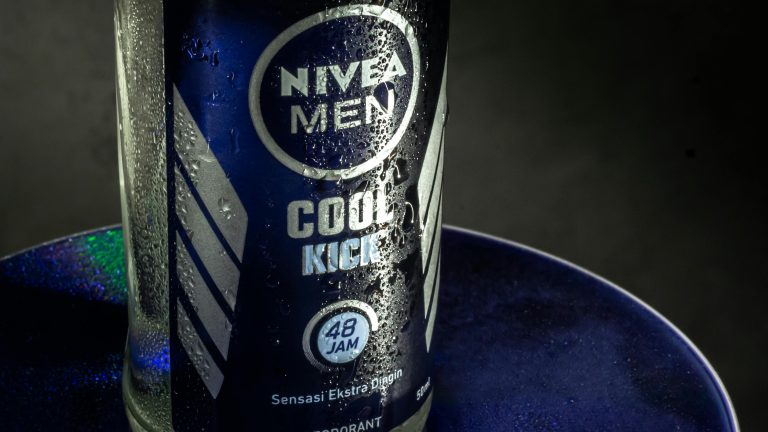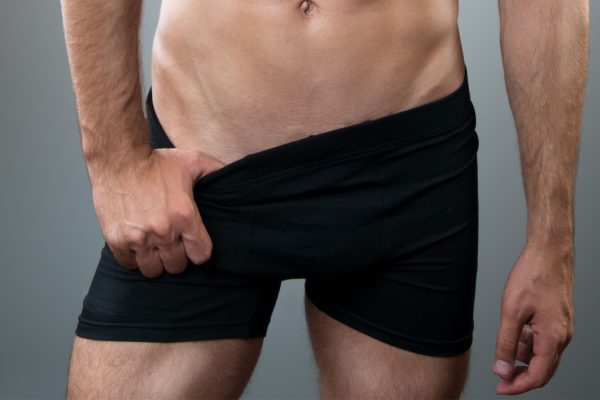Introduction to Testosterone and Its Effects on the Body
Testosterone, often recognized as the primary male sex hormone, plays a crucial role in a variety of physiological processes within the human body. Although it is present in both men and women, men typically produce much higher levels of testosterone. This hormone is responsible for developing male characteristics such as muscle mass, deepening of the voice, and facial hair. However, beyond these well-known effects, testosterone also significantly influences the body’s production of sweat, which directly impacts body odor.
The Science Behind Body Odor: What Causes It?
Body odor, commonly referred to as B.O., is a result of the breakdown of sweat by bacteria on the skin. Sweat itself is odorless, but when it comes into contact with bacteria, particularly those that thrive in warm, moist environments such as the armpits, a distinctive odor is produced. There are two main types of sweat glands involved in this process: eccrine and apocrine glands.
- Eccrine Glands: These glands are found all over the body and produce a watery sweat primarily composed of water and salt. Eccrine sweat helps regulate body temperature and is usually not associated with strong odors.
- Apocrine Glands: Concentrated in areas such as the armpits and groin, apocrine glands produce a thicker, milky sweat that is rich in proteins and lipids. When this sweat is broken down by bacteria, it results in the production of compounds that cause body odor.
How Does Testosterone Affect Body Odor?
Increased Sweat Production
Testosterone can influence the activity of sweat glands, particularly the apocrine glands. Higher levels of testosterone have been linked to increased sweat production. This is why, during puberty—a time when testosterone levels spike—many individuals begin to notice stronger body odors. As testosterone levels rise, the apocrine glands become more active, leading to more sweat being produced in areas where body odor is most noticeable.
Changes in Skin Bacteria
Testosterone doesn’t just increase sweat production; it also alters the composition of the skin’s microbiome. The types of bacteria present on the skin can change in response to higher levels of testosterone, with some bacteria that are more efficient at breaking down sweat becoming more prevalent. This shift can result in more potent body odor as these bacteria produce more of the compounds responsible for the smell.
Impact on Sebaceous Glands
Testosterone also affects the sebaceous glands, which are responsible for producing sebum, an oily substance that can contribute to body odor. When mixed with sweat, particularly the fatty acids found in apocrine sweat, sebum can enhance the intensity of body odor. Additionally, the interaction between sebum and bacteria on the skin can lead to the formation of compounds like isovaleric acid and androstenone, both of which have strong, unpleasant smells.
Why Some People Have Stronger Body Odor Than Others
Not everyone with high levels of testosterone will experience the same degree of body odor. Several factors can influence how strong a person’s body odor is, including:
- Genetics: Some people are genetically predisposed to have a more active apocrine gland system or a skin microbiome that produces more odor-causing compounds.
- Diet: What you eat can influence body odor. Foods rich in sulfur, such as garlic and onions, can lead to more pungent body odor, while diets high in red meat can also intensify the smell.
- Hygiene: Regular bathing can help reduce the amount of bacteria on the skin, thereby decreasing the potential for body odor. However, over-washing can sometimes exacerbate the problem by disrupting the natural balance of bacteria on the skin.
- Health Conditions: Certain medical conditions, such as hyperhidrosis (excessive sweating) or metabolic disorders, can lead to stronger body odor. Additionally, some individuals may have conditions that cause their bodies to produce more of the odor-causing bacteria.
Managing Body Odor: Effective Solutions
Antiperspirants and Deodorants
Antiperspirants work by temporarily blocking the sweat glands, thereby reducing the amount of sweat that reaches the skin’s surface. Less sweat means less food for bacteria, which in turn means less odor. Deodorants, on the other hand, do not prevent sweating but instead mask the odor with fragrance and often contain antibacterial agents to reduce the number of bacteria on the skin.
Maintaining Good Hygiene
Regular showering with antibacterial soap can help keep the skin clean and reduce the number of odor-causing bacteria. Paying special attention to areas with a high concentration of apocrine glands, such as the armpits and groin, can be particularly effective. After showering, it’s important to dry these areas thoroughly, as bacteria thrive in moist environments.
Dietary Adjustments
Making changes to your diet can also help manage body odor. Reducing the intake of foods that are known to cause strong smells, such as garlic, onions, and spicy foods, can make a noticeable difference. Additionally, staying hydrated and consuming a balanced diet rich in fruits and vegetables can help maintain a neutral body odor.
Clothing Choices
Wearing natural fibers like cotton, which allow the skin to breathe, can help reduce sweat accumulation and the associated body odor. Synthetic fabrics, on the other hand, can trap sweat and make body odor worse. It’s also advisable to change clothes regularly, especially after engaging in activities that cause sweating.
Medical Interventions
In some cases, over-the-counter solutions may not be enough to manage body odor effectively. For individuals with hyperhidrosis or other conditions that cause excessive sweating, medical treatments such as botox injections, prescription antiperspirants, or even surgical interventions may be recommended. Consulting with a healthcare provider can help determine the most appropriate course of action.
Conclusion
The relationship between testosterone and body odor is complex and influenced by a variety of factors. Understanding how testosterone affects sweat production and the skin’s microbiome can help individuals take proactive steps to manage body odor effectively. By combining good hygiene practices, dietary adjustments, and appropriate use of antiperspirants or deodorants, it’s possible to keep body odor under control even in the presence of higher testosterone levels.
Sources and Studies
- Testosterone and Body Odor: The Role of Apocrine Glands
- Study on Apocrine Glands and Body Odor
- This study explores the function of apocrine glands in producing body odor and how hormonal changes, including increased testosterone levels, can affect these glands.
- The Impact of Testosterone on Skin Microbiota
- Testosterone and Skin Microbiota
- Research highlighting how testosterone influences the composition of skin microbiota and its role in body odor production.
- Diet and Body Odor: Influence of Dietary Choices
- The Effect of Diet on Body Odor
- This article discusses how certain foods can affect body odor and the potential impact of a testosterone-driven diet.
- Medical Management of Hyperhidrosis
- Botox Treatment for Hyperhidrosis
- A review of medical interventions, including Botox, for managing excessive sweating and related body odor issues.
- The Role of Antiperspirants in Controlling Body Odor
- Effectiveness of Antiperspirants
- This study examines the effectiveness of antiperspirants in reducing sweat and body odor, with a focus on their interaction with testosterone levels.
“`html
FAQs: Testosterone and Body Odor
Question: How does testosterone influence body odor?
Testosterone increases the activity of apocrine glands, which produce a sweat rich in proteins and lipids. When this sweat is broken down by skin bacteria, it results in a stronger body odor.
Question: Can diet affect body odor caused by testosterone?
Yes, diet can influence body odor. Diets high in red meat, for example, can lead to a more intense body odor, while a diet rich in fruits and vegetables may result in a more pleasant smell. Research has shown that what you eat can affect how your sweat smells.
Question: Are there specific foods that can worsen body odor?
Yes, certain foods such as garlic, onions, and spicy foods can worsen body odor. These foods contain compounds that are excreted through sweat, resulting in a stronger odor.
Question: How can I manage body odor if I have high testosterone levels?
To manage body odor, maintain good hygiene by showering regularly, using antibacterial soap, and applying antiperspirants or deodorants. Wearing breathable fabrics and making dietary adjustments can also help reduce odor.
Question: Does testosterone therapy increase body odor?
Testosterone therapy can increase body odor due to the hormone’s effect on sweat gland activity and skin bacteria. Managing this side effect involves good hygiene practices and possibly adjusting the therapy under medical guidance.
“`
The Role of Hydration in Men’s Health: How Much Water Do You Need?
Testosterone and Skin Health: Effects on Acne, Aging, and Overall Appearance





